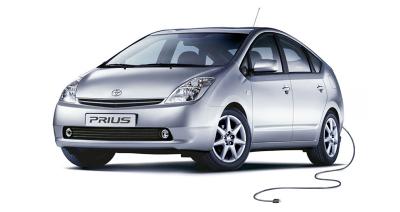A new study offers important evidence that plug-in hybrid electric vehicles can be a significant component of the national effort to reduce greenhouse gas emissions, the head of Edison International said yesterday.
“The study by the Electric Power Research Institute (EPRI) and the Natural Resources Defense Council (NRDC) is significant because it affirms through a systematic, conservative analysis looking at total environmental effects that the widespread use of plug-in hybrids would improve air quality and substantially reduce U.S.-generated greenhouse gas emissions,†said John E. Bryson, chairman and chief executive officer of Edison International.
EPRI and NRDC partnered to conduct a comprehensive analysis of the environmental impacts that occur when plug-in hybrids shift emissions from the tailpipe to the smokestack. One of the key findings is that widespread adoption of plug-in hybrids could reduce annual emissions of greenhouse gases from vehicles by more than 450 million metric tons by 2050, the equivalent of removing 82 million passenger cars, or one-third of today’s light duty cars and trucks, from the road.
“Electricity is the only alternative transportation fuel with a national infrastructure already built and connected to every garage,†Bryson said. “With the support of the public, we believe someday millions of Americans will fill up their vehicles at the plug instead of the pump, saving money and improving the environment.â€
I often hear people say that electric cars, or plug-in hybrids are not a solution because they just move the problem from the car to the power plant. They often point out that most of our electricity comes from coal. What they clearly (as this study shows) have not taken into account is the low efficiency of the internal combustion engine. Power plants are also easier to clean up, as they are just one source of emissions, as opposed to hundreds of thousands of individual pollution points driving around the nations highways.
So often I also hear about the “food or fuel” problem with bio-fuels. Frankly I think bio-fuels are never going to supply our transportation needs. Even if we made them from non-food sources such as wood chips or algae. I think the future is electric cars, plain and simple. No fuel cells, no bio-fuels, no hybrids, just electric cars. We have an electric infrastructure already in place (unlike hydrogen), we know how to use electricity (we do it all the time), and we can make it from solar and wind. Bio-fuels will be used to power the few types of vehicles that are not practical to move to electric, perhaps construction and other equipment that needs to be far from an electricity source.
Lets just hope that the car companies, and the marketing companies (because lets be honest, people will buy what they are marketed to buy) get behind this idea before it is too late.
